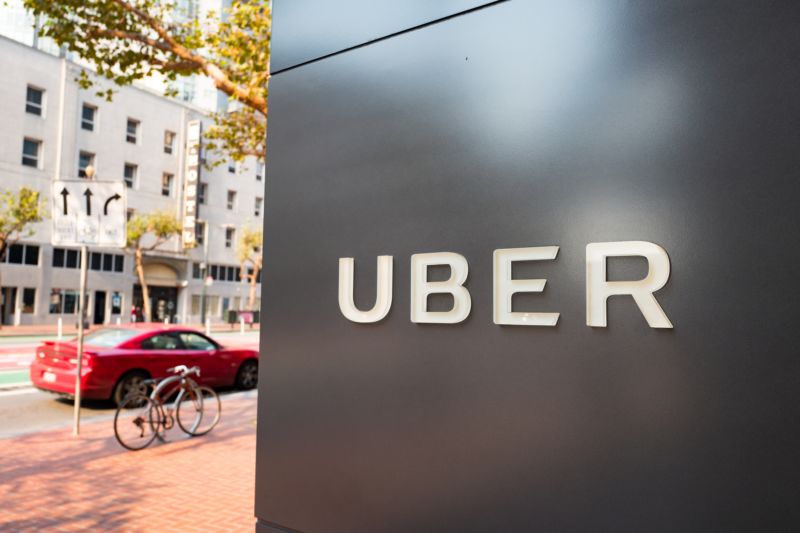
Enlarge / Headquarters of car-sharing technology company Uber in the South of Market (SoMa) neighborhood of San Francisco, California, October 13, 2017. (credit: Smith Collection/Gado/Getty Images)
In early May 2018, a California Supreme Court ruled that it is now harder for employers to formally classify their workers as independent contractors rather than employees.
The court’s opinion in Dynamex v. Superior Court of Los Angeles County could have a profound impact on many tech companies like Uber, Lyft, Instacart, and others that provide on-demand services. Dynamex is a courier and delivery company based in Kent, Washington.
As Ars has reported, the overwhelming majority of gig economy companies’ workers are not employees, and so they do not get any health, retirement, unemployment, or other benefits that typically come with full-time employment. Uber, for example, uses the euphemism “driver partners” when referring to its non-employee drivers, who constitute the backbone of the company’s service.
Read 6 remaining paragraphs | Comments
https://arstechnica.com/?p=1340273





